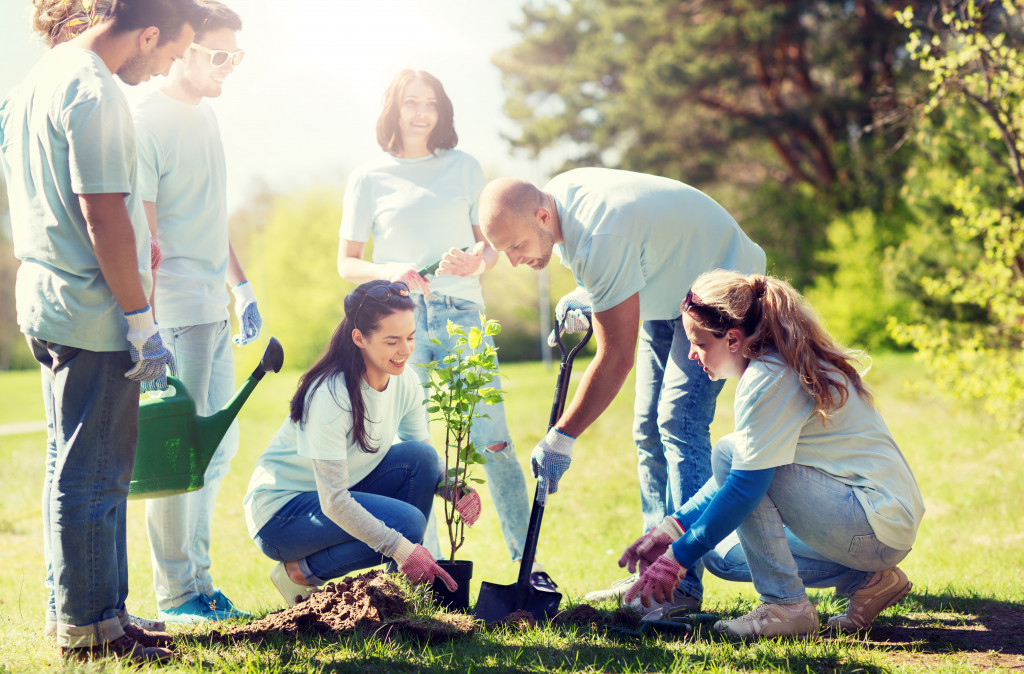Being an active citizen in one’s local community can significantly impact the quality of life for all individuals within the community. When citizens take the initiative to start initiatives or become involved in their local government, they demonstrate a proactive commitment to making their home environment safe and enjoyable for residents. Participation in social activities, such as volunteering at charity events or helping out with neighborhood cleanups, demonstrates care for the well-being of others and an effort towards community-building. Additionally, engaging with the local government allows individuals to provide their voices and advocate for positive neighborhood changes.
A study by the Harvard Kennedy School found that providing resources to local citizens and giving them the tools to make a difference in their communities can effectively improve community satisfaction and create a sense of belonging. Here are a few initiatives to start for your community.
Neighborhood Watch Program
Lowering crime rates should be a top priority for any community. Crime hurts the residents’ physical and mental well-being, increasing the sense of fear and mistrust among community members. Moreover, crime can negatively impact the economy since higher crime levels may deter individuals from investing in or starting businesses in these areas. Furthermore, crime can disrupt social services as you must divert resources away from other projects to alleviate the effects of criminal activity.
A neighborhood watch program is one way to help promote safety in local communities by encouraging citizens to look out for each other. It involves members of the community coming together and forming groups that meet regularly to discuss potential measures they can take to prevent or reduce crime in their neighborhoods. These groups usually focus on topics such as educating people about staying safe, identifying suspicious activities that could indicate criminal activity, and reporting information to law enforcement when necessary. Additionally, these programs often provide extra benefits, such as helping members feel more connected with their neighbors and facilitating dialogue between different groups within the community.
Green Initiatives

In addition to making communities safer, citizens can also take initiatives to improve the health of their environment. Green initiatives are projects designed to reduce waste and pollution, conserve natural resources, and promote healthier living for community members. These types of campaigns involve activities like the following:
Tree planting
Planting trees in parks or public areas can help reduce air pollution, combat climate change, and provide shade for outdoor recreation. Additionally, trees can add beauty to the environment, making them more appealing to residents and potential visitors.
Organic Waste Collection
Organic waste collection is a great way to ensure that food scraps are adequately recycled instead of going into landfills. This initiative involves providing bins that allow people to separate their compostable materials from regular trash. The compostables then get processed into organic fertilizer or sent off to be used in other projects such as gardening or landscaping.
Recycling Programs
Implementing recycling programs that provide citizens with suitable materials and equipment to separate their waste into different categories can promote eco-friendly practices. Such initiatives make it easier for people to do their part in protecting the environment while also saving them money on their garbage bills.
Green Initiative Awareness Lectures
Educating the public on the importance of green initiatives can be a great way to promote awareness and encourage community members to take action. This can involve organizing lectures, workshops, or events that provide information on energy conservation, water conservation, and proper waste disposal.
You can also help spread awareness on how your neighbors can profit from recycling. Not many know that you can recycle used cooking oil into biodiesel fuel. While it might be challenging to do it yourself, you can partner with a used cooking oil (UCO) recycling company willing to pay for the used oil. This is just one of the many ways to create a sustainable environment, generate income for community members, and reduce waste. By taking initiatives like these, you can positively contribute to your community and ensure sustainable development in the future.
Career Opportunities

Career opportunities are also essential components of healthy communities. Identifying projects and initiatives that create or expand job opportunities within the community is critical. This could include connecting local businesses with potential employees, providing job training to residents, or creating programs that encourage entrepreneurship within the area. Additionally, creating career resources for those facing economic challenges can help build a more equitable society where everyone can access employment regardless of socioeconomic background.
You can also start a youth-oriented initiative if there are many young adults in your area. This could involve providing guidance, mentorship, and career counseling to help young people plan their future and identify career paths they may be interested in pursuing. Additionally, you can create a local internship program that allows students from the community to gain hands-on experience in different fields. These initiatives can help build stronger communities by equipping young people with the skills and knowledge to pursue successful careers.
Final Thoughts
Overall, there are many ways for individuals to get involved in their neighborhood by starting initiatives that benefit everyone. By bringing together members of your community, focusing on safety, conservation of natural resources, and fostering economic empowerment through job opportunities, you can make a real impact on the well-being of your area.




